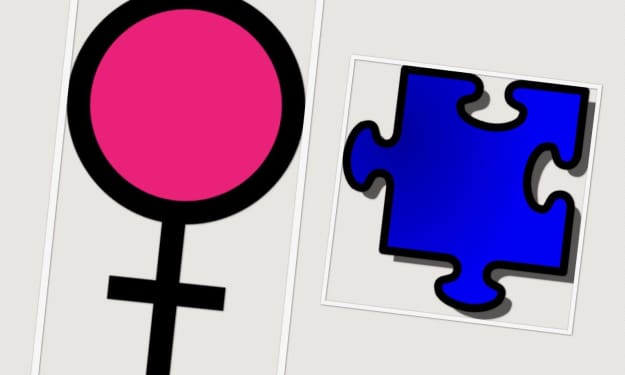I Never See Facial Expressions
Life in an Almost Silent World

In an art class in high school, I drew and painted a picture of Harry Potter flying a broomstick in the Hogwarts Quidditch Stadium. When I took my completed painting to the teacher, she asked about why none of the people in the picture had facial expressions, as they were all showing the same blank face. My answer was that I drew and painted them as such because that’s the way I see people in real life. Due to my autism, facial expressions are very difficult for me to both notice and interpret. Whenever I look at a person’s face, I just see their physical features.
There are many exercises that can help autistic children and adults to learn about facial expressions. Yet the results will differ in accordance to how able we are naturally in that particular area.
During my later years of school, I was shown many facial expressions for different emotions. But the problem was that they were exaggerated cartoon faces. In real life, facial expressions are so subtle that I don’t notice what I learned from those pictures at all. It’s said that the first facial expression that people ever learn instinctively is a smile. But as an adult of twenty-seven years, I can never recognise a smile on someone’s face, regardless of how much I try.
What confuses me so much is that our faces and mouths change position constantly whenever we sound out words. Say for instance “ee” looks a bit like a smile, and “oh” looks a bit like a look of surprise. So being able to read a person’s facial expressions while they’re talking is absolutely incredible to me. As most people can do that naturally, they truly amaze me and don’t even know just how talented they are.
However, despite being amazed and intrigued by this all, I don’t feel any desire to change the way I currently view the world. I’ve never known life any other way. Something else that is a part of my autism is that change gives me a lot of anxiety, as does sensory overload. Thus, being additionally distracted by the sight of hundreds of facial expressions a day would be enough to give me a headache and drive me mad.
Also, as said before, change itself gives me a lot of anxiety. For twenty-seven years I have grown accustomed and familiar with not worrying about facial expressions. If I were even able to learn how to live differently my whole thought process, feelings and life experiences would change completely. Having lived one way for so long it would feel extremely unnatural, forced, and it would also make me ashamed of the person I truly am inside.
It is indeed possible to live a typical and happy life without reading facial expressions. Friends aren’t any harder to make while living this way either. True empathy and compassion doesn’t come from a person’s ability to read facial expressions. It comes from whether or not they’re a kind person inside. Whenever a friend or family member is happy or upset, we don’t need in any way to be able to read their facial expression to empathise with them.
About the Creator
Rebecca Sharrock
I'm an autistic person who is making a career from writing, public speaking and advocacy work.






Comments
There are no comments for this story
Be the first to respond and start the conversation.